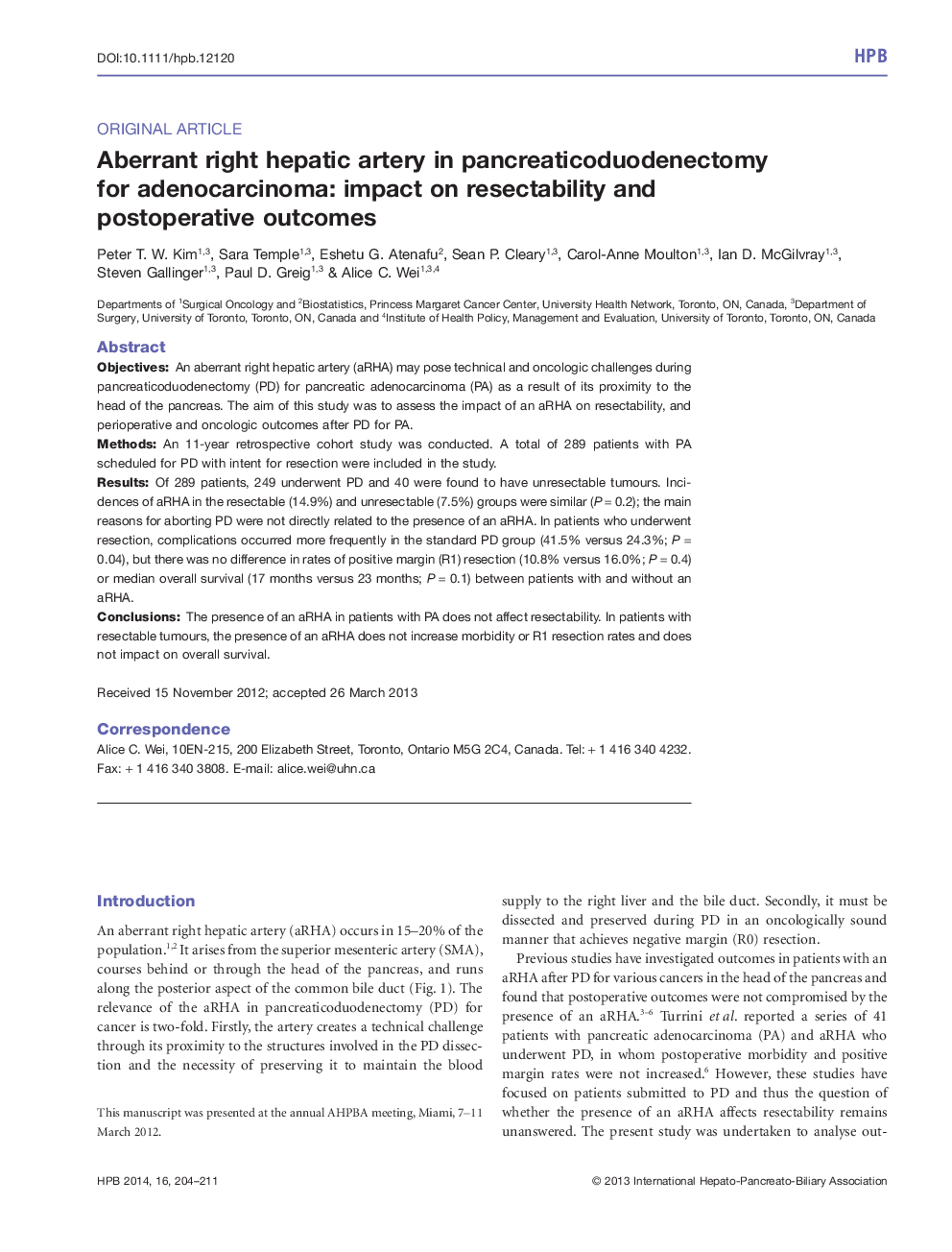| کد مقاله | کد نشریه | سال انتشار | مقاله انگلیسی | نسخه تمام متن |
|---|---|---|---|---|
| 3268997 | 1208109 | 2014 | 8 صفحه PDF | دانلود رایگان |
ObjectivesAn aberrant right hepatic artery (aRHA) may pose technical and oncologic challenges during pancreaticoduodenectomy (PD) for pancreatic adenocarcinoma (PA) as a result of its proximity to the head of the pancreas. The aim of this study was to assess the impact of an aRHA on resectability, and perioperative and oncologic outcomes after PD for PA.MethodsAn 11-year retrospective cohort study was conducted. A total of 289 patients with PA scheduled for PD with intent for resection were included in the study.ResultsOf 289 patients, 249 underwent PD and 40 were found to have unresectable tumours. Incidences of aRHA in the resectable (14.9%) and unresectable (7.5%) groups were similar (P = 0.2); the main reasons for aborting PD were not directly related to the presence of an aRHA. In patients who underwent resection, complications occurred more frequently in the standard PD group (41.5% versus 24.3%; P = 0.04), but there was no difference in rates of positive margin (R1) resection (10.8% versus 16.0%; P = 0.4) or median overall survival (17 months versus 23 months; P = 0.1) between patients with and without an aRHA.ConclusionsThe presence of an aRHA in patients with PA does not affect resectability. In patients with resectable tumours, the presence of an aRHA does not increase morbidity or R1 resection rates and does not impact on overall survival.
Journal: HPB - Volume 16, Issue 3, March 2014, Pages 204–211
